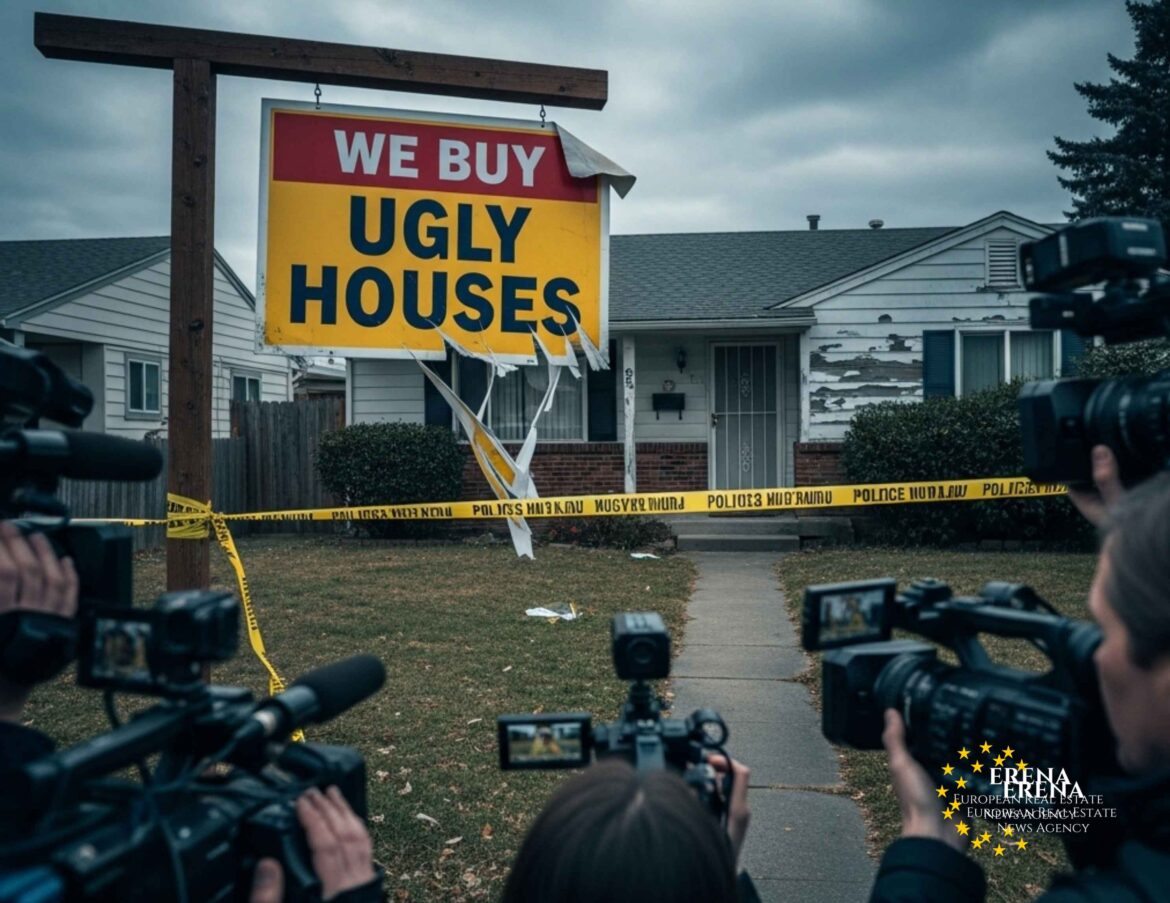HomeVestors of America, the company behind the well-known “We Buy Ugly Houses” brand, has found itself at the center of a major scandal following the exposure of a large-scale investment scam allegedly orchestrated by one of its franchisees. The investigation has revealed that behind the façade of a stable and profitable real estate business lay a fraudulent scheme that caused millions in investor losses.
The Heart of the Scandal
The primary figure in the case is Charles Carrier, the owner of a HomeVestors franchise in Dallas, Texas. According to federal investigators, Carrier ran a Ponzi-like scheme for years, luring investors with promises of high returns secured by real estate assets. However, investigators found that Carrier obtained multiple loans against the same properties—some of which he didn’t even own—and in some cases forged documentation to deceive investors.
The scope of the fraud was staggering: dozens of individuals lost money, with the total losses running into tens of millions of dollars. Some investors had committed their retirement savings or taken out loans, only to end up facing financial ruin.
HomeVestors Responds
HomeVestors of America, headquartered in Dallas, quickly issued a public response. The company emphasized that its franchisees operate as legally independent entities, and therefore, the parent brand should not be held directly responsible for their actions. Nonetheless, in an effort to protect its reputation, HomeVestors launched an internal investigation and terminated its relationship with Carrier.
The company has also filed a civil suit against the former franchisee and referred the case to the FBI. In official statements, HomeVestors representatives described Carrier’s behavior as a violation of company standards and expressed regret over the financial harm caused to investors.
The Mechanics of the Fraud
According to court documents, Carrier carefully cultivated the image of a successful businessman engaged in the profitable flipping of distressed properties. He invited individuals to invest in specific real estate projects that were supposedly backed by actual properties in Texas. In reality, he operated a pyramid-style model, using funds from new investors to pay off earlier ones.
In some cases, Carrier secured mortgages on the same properties with multiple lenders and falsified ownership records. At the same time, he aggressively promoted his business through social media, promising returns of 12% or more—figures well above average and a clear red flag for experienced investors.
Legal Consequences
The case came to the attention of federal authorities after several investors filed complaints with the U.S. Securities and Exchange Commission (SEC). A full investigation uncovered potential criminal violations including fraud, document forgery, illegal fundraising, and money laundering.
As of this writing, Charles Carrier has been arrested and faces multiple felony charges. If convicted, he could receive a lengthy prison sentence along with asset forfeiture.
SEC’s Role and Investment Warnings
The HomeVestors scandal has reignited calls for tighter regulation of private real estate investments. Representatives of the SEC have announced plans to introduce more stringent oversight for unregistered investment offerings, particularly those outside regulated exchanges.
Financial advisors have also weighed in, urging investors to perform due diligence, verify licenses and registration details, and remain skeptical of any claims of “guaranteed returns”—especially those that significantly outpace market averages.
Franchise Model Under Scrutiny
The franchise model, which underpins HomeVestors’ national presence, is now being critically reassessed. While franchisees are legally independent, many argue that the parent brand bears some moral responsibility for ensuring their credibility and behavior—especially when the brand name plays a key role in building investor trust.
Legal experts note that such scandals can significantly tarnish a brand’s reputation and cast doubt on the integrity of franchising in the real estate sector.
Impact on the Real Estate Market
In Dallas, where the scandal unfolded, local brokers report a spike in investor hesitancy, particularly in distressed or rental real estate deals. Confidence in this market segment has been shaken, and transparency is now more vital than ever.
There’s also growing demand for legal due diligence and risk insurance, which is increasing the overall cost of real estate transactions in the region.
International Implications
HomeVestors’ brand presence extends beyond the United States, with operations in other countries. Following the scandal, reports have emerged that some international partners are suspending activities or reevaluating franchise agreements. This is especially true in highly regulated markets such as Canada, the UK, and Germany.
Regulators in these countries have begun requesting detailed information from HomeVestors about their franchise model, compliance procedures, and investor communication protocols.
Potential Regulatory Changes
Industry analysts predict that this high-profile case will lead to reforms in how franchisees and investment offers are regulated. Proposed measures include:
- Mandatory registration of real estate investment offerings;
- Licensing requirements for franchisees at the state level;
- Creation of blacklists for individuals with prior violations;
- Increased legal accountability for franchisors regarding partner behavior.
If implemented, such reforms could significantly reshape the real estate investment landscape in the U.S. and abroad.
Conclusion
The scandal surrounding the HomeVestors brand is a powerful reminder that trust in a name is no substitute for due diligence and oversight. Although the company has sought to distance itself from its rogue franchisee, the reputational damage has already been done. Charles Carrier’s scheme underscores the importance of transparency, accountability, and critical thinking in any financial transaction.
HomeVestors must now rebuild its credibility and reconsider how it vets and monitors franchisees if it hopes to regain investor and public trust.

